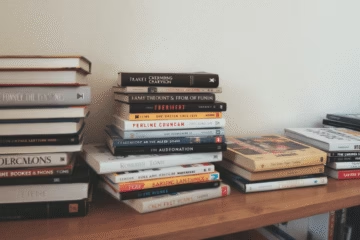Intuition is also referred to as a gut feeling. Someone can get an immediate understanding of something without conscious reasoning. It is the functioning of those parts of your brain that cannot be controlled consciously. In other words, it is a function of the unconscious mind. In intuition, the logical arm of the mind-brain network is bypassed.
Master Your Sixth Sense
It is considered the sixth sense, which works in a quite different way. It is not the extension of the five senses that works all the time during the waking hours. It cannot be measured as compared to other senses, like the function of different senses, visual acuity, and hearing, which can be measured.
Unparalleled online learning experiences, New Skills Academy!
How is it developed?
- Intuition is developed when someone gets a deeper level of receptivity.
- It is developed when the mind is not busy with other thoughts.
- It is an important tool to develop a deeper understanding of the true nature.
- In a distracted mind, intuition can never be developed.
- It allows you to think deeply and garner information about the outside world and information about your being.
- It comes when the activation of the dormant centers of the brain occurs, which links up with the other similar dormant areas of the mind.
Types of Intuition
There are certain types of intuition that philosophers have an interest in. These involve:
- Political intuition
- Moral intuition
- Interpersonal intuition
Political intuition
It is the ability to have an innate and extensive understanding, knowledge, and skills in politics. In this type, the basic question is the kind of society you want to live in. Some people believe in living in a competitive society, while others believe that a competitive society favors good looks, inherited wealth, and sheer luck in business.
Moral intuition
It is the sudden appearance of a moral judgment in consciousness. Some people want to find their moral ideas on intuitions, such as that the torture of animals for fun is wrong. But why? Because they feel pain, and to create unnecessary pain in the world is wrong.
Interpersonal intuition
It is the ability to understand what others are feeling and thinking just by instinct. It is a very important and beneficial type of intuition in which beneficial relationships are developed when you work well with others.
Unparalleled online learning experiences, New Skills Academy!
How is intuition beneficial?
- Reduce stress levels
- Build stronger relationships
- Become more creative
- Find your purpose
- Enjoy new life experiences
- Learn who to trust
- Feel more joyful
How to strengthen your intuition?
There are several ways to strengthen your intuition. These involve:
1. Meditation
Meditation is an important tool to access your intuition because it allows you to deepen your connection to it.
- Regular meditation allows you to teach yourself how to recognize the subtle impulses from within, in a better way to clear your mind of distractions.
- Set aside time for meditation each day.
- Even ten minutes will make you notice your intuition by meditating each day.
- Dedicate time to listening to your intuition each day
- It is especially important to give time to yourself each day to listen to your intuition. Life is too busy, and it is normal to forget to stop, listen to yourself, and tune into your deeper intelligence.
2. Recognize when your intuition speaks
It is particularly important to recognize your intuition when it speaks. Intuition may speak differently for different people.
- It may speak to you as a thought, a hunch, and as words.
- To get more information and clarity, you can enter into a dialogue with your intuition. It is not usually loud and demanding.
- It may be received in the visual messages, like the images that appear in quick flashes and visions that unfold slowly, such as in a movie.
- It may speak to you in your feeling of relief, goosebumps, a sour taste in your mouth, and discomfort in your gut.
- The other way in which you can recognize your intuition is through emotions like feelings of uneasiness and confusion.
- The feelings of euphoria, such as when your inner wisdom speaks to you away from something, and profound peace when you are following a path that will lead you to greater personal abundance and joy.
- Intuition may be a deep sense of certainty and knowing.
3. Ask questions
Ask questions yourself. Get specific about the information you need and find what kind of answers you are looking for. Brainstorming helps you to recognize what you need, which leads you to evaluate yourself and recognize your intuition.
4. Write down your answers
By writing the answers about what you need, you can evaluate yourself easily and reach your intuition.
5. Get creative
Engage yourself in creative activities like free-flow journaling, drawing, and scrapbooking. These activities allow you to speak up about your intuition.
6. Spend time in nature
It is another way to recognize your intuition. When you are away from technology and try to spend time in the natural world, you can open up a kind of intuition.
7. Engage in repetitive movement
The physical actions allow you to open up your intuition by calming the cognitive mind. The repetitive movement involves playing the piano, running, and dancing.
8. Consult your body compass
Your body helps you to recognize your intuition. The more you cultivate somatic awareness, the more sensitive you will be.
9. Pay attention to your dreams
It helps you to reach your intuition. When you are sleeping, your subconscious mind opens, which is the wellspring of your intuition, because the cognitive mind rests in this state. The subconscious mind opens when your cognitive mind rests.
Unparalleled online learning experiences, New Skills Academy!
Frequently Asked Questions
What is intuition, and how does it function in the brain?
Intuition, also known as a gut feeling, is the immediate understanding of something without conscious reasoning, functioning through parts of the brain that cannot be controlled consciously, as a part of the unconscious mind, bypassing logical processes.
How can I develop my intuition?
You can develop your intuition by increasing receptivity, maintaining a focused and undistracted mind, engaging in activities that deepen self-understanding, and activating dormant centers of the brain that connect with similar areas of the mind.
What are the different types of intuition and their significance?
The main types of intuition include political intuition, which involves understanding societal and political dynamics; moral intuition, which is about instinctive moral judgments; and interpersonal intuition, which helps you understand what others are feeling and thinking.
How can I strengthen my intuition effectively?
Strengthening intuition can be achieved through practices like meditation to clear your mind, recognizing when your intuition speaks through various sensations or feelings, asking yourself specific questions, writing down insights, spending time in nature, engaging in repetitive movements, and practicing somatic awareness.
Why is paying attention to dreams beneficial for intuition?
Paying attention to dreams is beneficial because, during sleep, the subconscious mind, which is a source of intuition, opens up as the cognitive mind rests, helping you access deeper insights and understanding.
References:
- Shirley, D. A., & Langan-Fox, J. (1996). Intuition: A review of the literature. Psychological Reports, 79(2), 563-584.
- Lieberman, M. D. (2000). Intuition: A Social Cognitive Neuroscience Approach. Psychological Bulletin, 126(1), 109.
- Sadler-Smith, E. (2007). Inside intuition. Routledge.
- Wild, K. W. (2014). Intuition. Cambridge University Press.
- Dane, E., & Pratt, M. G. (2007). Exploring intuition and its role in managerial decision-making. Academy of Management Review, 32(1), 33-54.
Body, Mind, And Soul For A Fulfilled Life!




